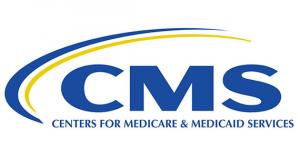Biden-Harris Admin launches effort to increase Medicare Advantage transparency

via the Centers for Medicare & Medicaid Services (CMS):
CMS Announces Data RFI to Improve Data Sharing and Enhance Competition
On December 7, the Biden-Harris Administration announced new actions to promote competition in health care, including increasing transparency in the Medicare Advantage (MA) insurance market and strengthening MA programmatic data. Today, the U.S. Department of Health and Human Services (HHS), through the Centers for Medicare & Medicaid Services (CMS), is continuing momentum in this area by releasing a Request for Information (RFI) to solicit feedback from the public on how best to enhance MA data capabilities and increase public transparency.
Transparency is especially important now that MA has grown to over 50% of Medicare enrollment, and the government is expected to pay MA health insurance companies over $7 trillion over the next decade. The information solicited by this RFI will support efforts for MA plans to best meet the needs of people with Medicare, for people with Medicare to have timely access to care, to ensure that MA plans appropriately use taxpayer funds, and for the market to have healthy competition.
“Americans with Medicare who have managed care plans called Medicare Advantage should not feel like their health care is a black box,” said HHS Secretary Xavier Becerra. “The lack of transparency in Medicare Advantage managed care plans deprives patients of important information that helps them make informed decisions. It deprives researchers and doctors of critical data to evaluate problems and trends in patient care. Transparency is key to the Biden-Harris Administration’s effort to increase competitiveness and ensure that Medicare dollars are spent on first-rate health care.”
“The Biden-Harris Administration is committed to improving the Medicare Advantage program,” said CMS Administrator Chiquita Brooks-LaSure. “This Request for Information builds on our existing Medicare Advantage data transparency efforts to further align with Traditional Medicare and provide the data we need to ensure the growing Medicare Advantage program best meets the needs of enrollees.”
CMS has already taken several steps to improve transparency in this market, outlined below, and the MA data RFI is the next step in these efforts. CMS is seeking data-related input from the public related to all aspects of the MA program, including access to care, prior authorization, provider directories, and networks; supplemental benefits; marketing; care quality and outcomes; value-based care arrangements and equity; and healthy competition in the market, including the effects of vertical integration and how that affects payment. We are also seeking comments on improving MA data collection and release methods. The RFI has an extended comment period of 120 days to encourage feedback from a wider array of stakeholders and to allow time for convenings and other efforts to synthesize detailed feedback to CMS.
“In health care, you can’t improve what you don't know, and the way to know is with data. We need to have transparent Medicare Advantage data to see what’s working and what’s not working to inform our efforts to protect enrollees and drive high-quality care and competition,” said Meena Seshamani, MD, PhD, CMS Deputy Administrator and Director of the Center for Medicare. “Through this RFI, we look forward to engaging all parties interested in the Medicare Advantage program.”
Background on Existing CMS MA Data Efforts
Today’s announcement builds on CMS’ existing MA data transparency efforts to improve data capabilities. CMS has already begun collecting more data related to various aspects of MA, including more comprehensive payment data related to Medical Loss Ratios (MLRs), new data streams for supplemental benefits costs and utilization, new data collection and public posting requirements related to prior authorization, and new collection of race and ethnicity data. CMS has also increased requirements for the completeness of encounter data.
For MLR data, in May 2022, CMS finalized rulemaking [1] to add 18 additional supplemental benefit reporting categories and to reinstate the detailed MLR reporting requirements that were previously in effect for contract years 2014 to 2017, which required reporting of the underlying data used to calculate and verify the MLR and any remittance amount, such as incurred claims, total revenue, expenditures on quality improving activities, non-claims costs, taxes, and regulatory fees.
For supplemental benefits, CMS has taken multiple actions that will ensure that, by 2025, CMS has data needed to answer key policy questions related to supplemental benefits, including what is being offered, what plans are spending, which enrollees use which services, the cost to enrollees, and plan-level utilization.[2] CMS has conducted technical assistance calls to assist plans in reporting encounter data for supplemental benefits, including Special Supplemental Benefits for the Chronically Ill. CMS is also collecting more data related to the MA Value-Based Insurance Design Model,[3] which tests how MA plans can more comprehensively address the medical and health-related social needs of patients, advance health equity, and improve care coordination for patients with serious illnesses.
For utilization management and access to care, CMS recently finalized prior authorization and interoperability requirements to require MA organizations to publicly report data on prior authorization denials and approvals[4] and proposed requirements for MA plans to publicly post annual health equity analysis of prior authorization policies and procedures.[5]
Regarding race and ethnicity data, CMS began collecting race and ethnicity data voluntarily on MA and Part D enrollment forms.[6] CMS is also requiring and encouraging more complete and accurate reporting of encounter data by MA organizations. In addition to the encounter data efforts related to supplemental benefits detailed above, over time, CMS has phased in greater use of encounter data in calculating risk scores, culminating in moving from the previous Risk Adjustment Processing System (RAPs) to calculating 100 percent of the risk score using diagnoses from MA encounter data and Traditional Medicare claims for the 2022 coverage year.



